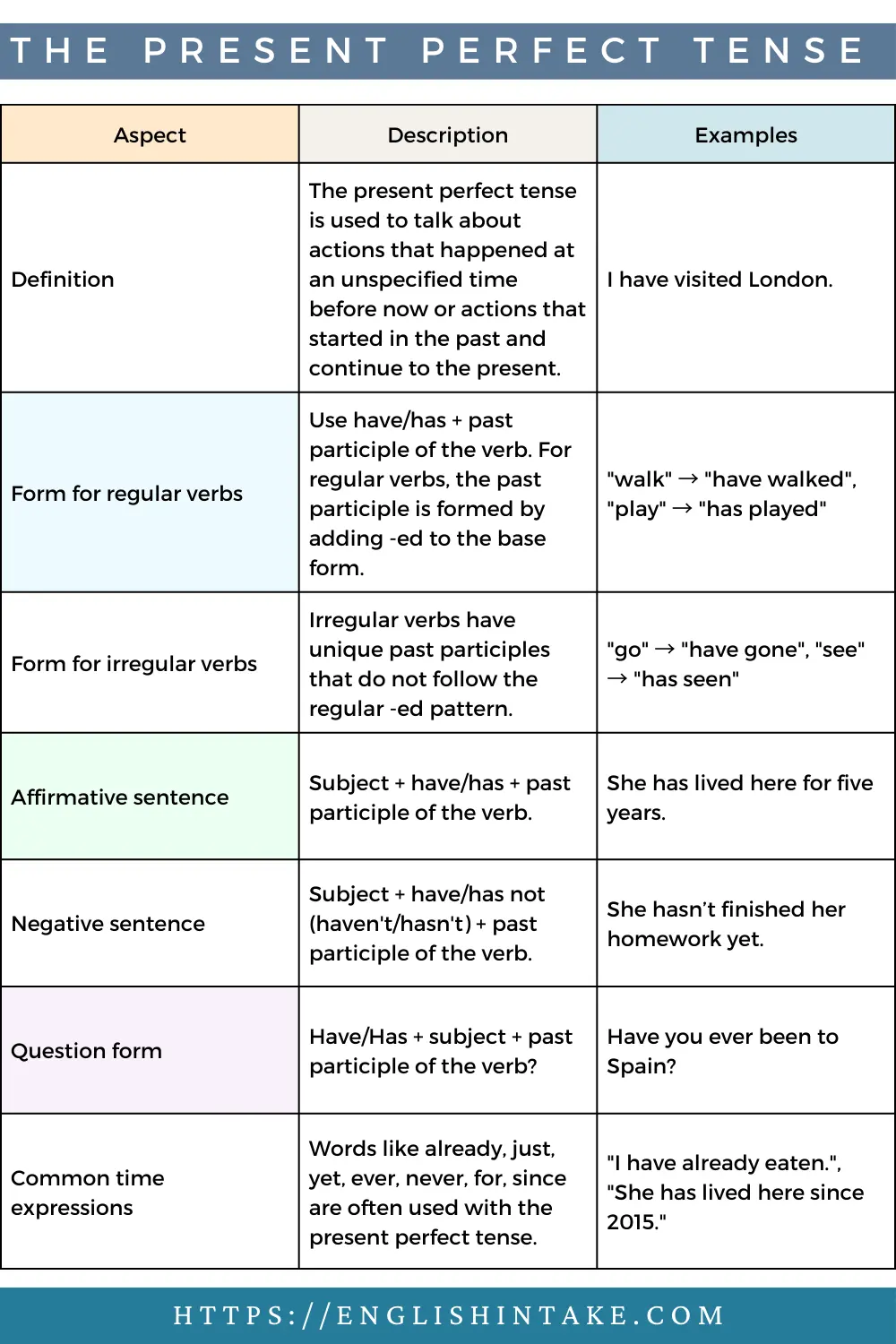Perfect tenses are a crucial aspect of English grammar that can help convey specific meanings in sentences. Understanding when to use perfect tenses can enhance the clarity and precision of your writing. By mastering the usage of perfect tenses, you can effectively communicate the sequence of events and emphasize the completion of actions.
Before delving into the specific instances when perfect tenses should be used, it is essential to grasp the basic concept of perfect tenses. Perfect tenses indicate that an action was completed at a specific point in the past, present, or future. These tenses consist of a form of “have” (have, has, or had) followed by the past participle of the main verb. By using perfect tenses, you can provide additional information about the timing and completeness of an action.
When to Use Perfect Tenses
Perfect tenses are used in various situations to convey specific meanings. One common use of the present perfect tense is to describe actions that started in the past and continue into the present. For example, “I have lived in this city for ten years” indicates that the action of living in the city began in the past and is still ongoing. The present perfect tense is also used to express experiences or accomplishments that have relevance to the present moment.
The past perfect tense, on the other hand, is employed to show the sequence of events in the past. It is used to indicate that one action was completed before another action took place. For instance, “She had already finished her homework when her friends arrived” conveys that the action of finishing homework occurred before the arrival of her friends. By using the past perfect tense, you can provide clarity about the chronological order of events.
In addition to the present perfect and past perfect tenses, the future perfect tense is used to describe actions that will be completed by a specific point in the future. This tense is formed by combining “will have” with the past participle of the main verb. For example, “By this time next year, I will have graduated from college” indicates that the action of graduating will be completed by a future point in time. The future perfect tense helps emphasize the completion of actions in the future.
Overall, mastering the usage of perfect tenses can significantly enhance the clarity and precision of your writing. By understanding when to use perfect tenses in different contexts, you can effectively convey the timing and completeness of actions. Whether you are describing ongoing activities, sequencing events in the past, or projecting future accomplishments, perfect tenses play a crucial role in expressing nuanced meanings.
